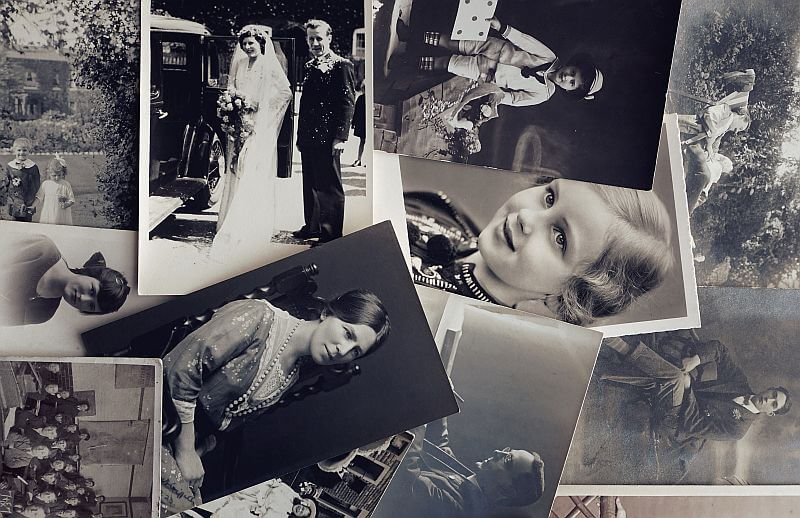The aphorism “Those who fail to learn from history are doomed to repeat it” doesn’t refer to students retaking history courses during summer or later semesters. Instead, it warns us not to ignore historical trends and the influence of past events on the context of our current decisions. Future choices will also be analyzed in history books, alongside events we now view as distant and disconnected from our lives, like the Immigration Act of 1924 or the desegregation of the Little Rock Nine.
It is quite easy to take an academic attitude of rote memorization towards these moments in history, but all too many students discover on the day of an assessment or test that this attitude is insufficient. We cannot learn history this way and, through my experience with tutoring, I will describe why and what a student of history or social studies might do instead.
History is Not a Story That Can Be Understood as a String of Events
Much debate has centered on whether history is a complex narrative or a simple chain of objective facts. To truly understand history, we must appreciate both views. History seeks to uncover what happened and the resulting consequences. This approach often emphasizes removing bias from interpretations and presenting a straightforward path from cause to effect.
At the same time, social science, as we teach it, presents history as a narrative, one that is removed from absolute truth in steps and measures. Recognizing this means accepting that evidence and primary accounts can’t fully capture the complexity of events. Historians are fallible, prone to mistakes and bias. These two perspectives on history aren’t mutually exclusive—they can both be valuable, as long as students remain mindful of nuance.
Is Not All about Memorization
Unfortunately, memorizing the events, personages, and points of data in history cannot account for this nuance. The ability to repeat what has been taught to the student demonstrates none of the analytical skills necessary to learn from history. This practice of memorization ignores the subjective and non-factual aspects of the historical record and fixates on known history at the expense of what remains undiscovered.
This approach to social science ill-prepares the student for taking in new facts that are disruptive to the narrative of history they have already committed to memory. Students must be able to comment on, adapt, and account for unknowns in the historical record if they are to build analytical skills. A student who can take in the various parts of the history curriculum while keeping in mind the subjective imperfections of that curriculum will be able to add to and improve the social science curriculum later on as a professional. Such a student will also be better able to take part in civic democracy as well.

Analysis is Not the Opposite of Memorization, but the Director of Memorization
While it may be simple to decry memorization in favor of the all important academic skill of analysis, I believe it would be oversimplifying to throw out memorization at all. Of course students will need to memorize information in order to pass their history classes, this article is concerned with memorization at the expense of all else. The trick is to first analyze which information is worth memorization, to which a student should be able to take cues from their teacher’s presentation of curriculum. Once those details are in the student’s memory, they can then analyze deeper connections and inferences using those details
Trends are handy concepts for focusing analysis in social science. A typical history course divides into multiple units, each focusing on a few key trends.. These historical trends might be a movement, a field of progress, a role or undertaking that would fit multiple historical actos, an interaction between groups, or a change or adaptation that is important to understanding what came next.
The teacher of the course should identify the key trends that students must understand before completing an assessment and often insists on this. By choosing trends to focus on, students can save their memorization for relevant facts that fit into a larger pattern. Ultimately, knowledge of a historical trend can save a student who has not memorized a particular datapoint in that trend, by providing a model they can use to “fill in” any gaps of knowledge when assessed.
Context is Key in Social Science, and Saves Time
In the end, memorization is an imperfect all-purpose solution to the struggle to gain mastery in history for, as previously alluded, it is exclusionary. Memory has limits. A student who relies only on regurgitating memorized factoids has to decide which facts are worth remembering. A student might attempt to learn the identities and accomplishments of every person in their history textbook, but not without ignoring other important facts. Attempting to instead grasp the contexts in which these historical actors made choices will actually save the student time, as understanding the context in which a person acted allows for better inferences as to how they acted in specific situations.
Remember, when struggling with history, to study smarter not harder. Save the flashcards for key terms and don’t neglect to analyze the influence of trends and historical contexts. And if you require any further help with your Social Studies classes, there are AJ tutors ready to help!

